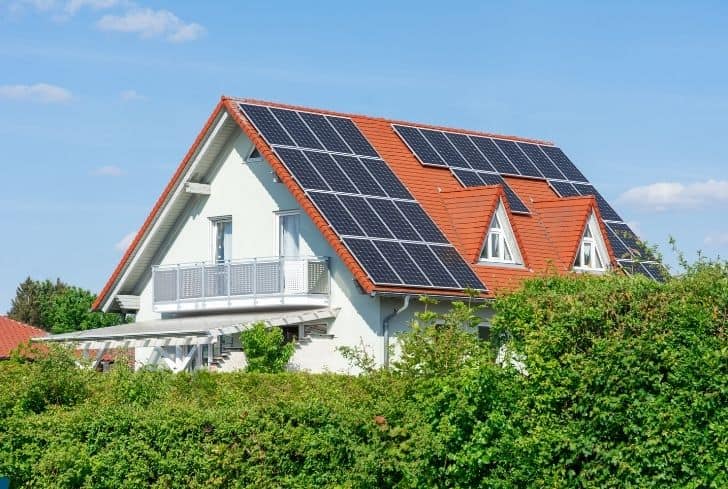A subscriber to my newsletter recently approached me with a dilemma. You are 81 years old and want to know if it is worth investing in a rooftop solar system. You know you may not live long enough to recoup your investment. Should I do it anyway?
Now I love all forms of solar energy. But her situation awakened my inner devil's advocate and prompted me to create a list of questions every homeowner should ask themselves before investing in a solar system.
The first is the simplest: How long will you live in your home? In 2016, while collecting data for my two books, Roof Robbery, I discovered that people, on average, have owned a home for eight to nine years.
Here's why it matters: You won't save a dime on any solar system until you pay for it with lower energy bills. This cost includes all the money spent on installing the solar panels, battery and switches, plus interest rates if you borrow the money, and the opportunity cost of not investing that money elsewhere.
Let's look at a very simple example. Let's say I'm installing a new 10 kW solar system. After all the tax credits, incentives, rebates, etc., I have to write a check to pay the solar panel company for $19,181. I arrived at this number using an online calculator for my logic in August 2022. Let's say I need to finance the purchase, like most people.
The average electric bill is now $260 a month. Communication expenses, taxes, etc. are included. Let's say on average I have to pay $230 a month for electricity.
So I calculate that in a year I will save the $2760 I currently pay at NH Electric Coop. Assuming everything remains the same, which it never was, simple math shows that it will take me 6.95 years to pay off my investment.
Your ROI analysis should also include what would happen if you paid money to install a solar panel. Before you write a check to the repairman, your money has likely earned interest or appreciated in exchange. Of course, you can't predict the future results, but the money you earn every month can be used to pay your electricity bills. Once the check on the solar boat was cleared, that revenue stream disappeared.
But what happens in the ninth or tenth year of life when you suddenly realize you need a new roof? What additional costs do you have to pay a roofing contractor to remove and reinstall shingles so you can install new shingles? How many years of energy savings have been eliminated?
Can your roof support the extra load of the panels? You may be surprised to find that your local building department performs an inspection before installing solar panels. If you live in an area prone to heavy snowfall, wouldn't the deep, wet snow that sticks to your footings cause it to cave in? How much does it cost to reinforce your roof?
Will your insurance company cancel your policy if I install solar panels? (It happens!) Before installing the system, it's best to check with your insurance company. Find out if your premium will increase to cover your installation. If so, this should be taken into account when calculating the return on investment.
Is your home the right way to get the most electricity from the sun? My roof is not. The long axis of my house runs from north to south. Installing solar panels on my roof means that sunlight only reaches the panels for part of the day.
And the trees? Is your site having problems with shading or partial shading? What about potential damage from hail or falling trees? What is a home insurance deductible?
Would you get a solar panel with a bypass diode connected in series with an array of solar cells? If this is the case, then when only one panel is shaded and not producing power, the entire array of cells stops producing electricity.
And the ambient temperature? Solar panels are known to produce less energy in hot climates. It produces an incredible amount of power if the air temperature is cold. How will this affect your return on investment?
What about the snow? How much electricity do snow covered panels produce? If your panels are beyond the reach of traditional de-icers, how much will snow removal cost you? What are the chances that the panels will be damaged during snow removal? How much will the repair cost? How do all these costs affect your energy savings?
Have you thought about how to pay over time for the maintenance of the electrical infrastructure in your area? As more and more people install solar panels and stop paying their utility bills each month, the cost of keeping wires on poles increases. Your system is connected to the network. As your utility income goes down, your monthly connection costs are sure to go up.
You see, when it comes to ROI on solar panels, it's not all unicorns and rainbows. Don't let your emotions control your decision to buy solar panels. good luck.
Sign up for Tim Carter's free newsletter at AsktheBuilder.com.
Carter is currently streaming the video Monday through Friday at 1:00pm at youtube.com/askthebuilder.



